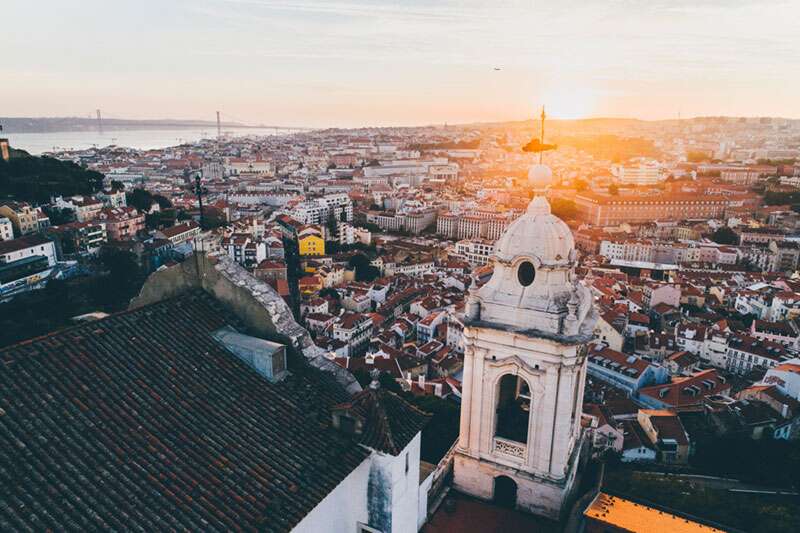Living in Portugal – Religion
Eighty one percent of the Portuguese population belongs to Roman Catholic church, while the remaining minority is divided between Jewish, Protestant, Buddhist, Latter-Day Saint, Baha’i, Muslim, Jehovah’s Witness, Hindu, Eastern Orthodox Church, Sikh, and Spiritualist communities.
Roman Catholic
As the figure above suggests, the great majority of the Portuguese are Roman Catholic. While more than eighty percent of the Portuguese population belongs to the Roman Catholic church, it is not uncommon for the Portuguese to identify themselves as Roman Catholic while not being active participants of the church. However, regardless of how actively they practice their Roman Catholic faith, the great majority of them still chooses to get married and baptize their children in church.
It is worth mentioning that the religious practice greatly varies among different regions of Portugal. For example, mass and other religious services have higher percentages of attendees in the northern parts of the country than in the south. The Portuguese of the South are typically less proactive about practicing their religion.
The Roman Catholic church has officially been separated from the Portuguese state between years 1910 and 1926, during the period of the First republic of Portugal. In spite of this, the Roman Catholic church wields great influence to this day on the Portuguese culture and society overall.
A great majority of the Portuguese traditions, festivals, and holidays that are practiced and celebrated even in this day and age, essentially have deep religious roots.
There is a Roman Catholic church to be found in almost every Portuguese village, and these particular buildings typically have a rather prominent location, such as the village square.
-

- Living in -Portugal – Religion
-

- Living in Portugal – Religion
Non-Catholic Communities
Portugal is a country that has a long and rich history, but throughout it all there were not many non-Catholics that lived in the country. A major factor that has contributed to this is the fact that for the longest time in Portuguese history, religious practices other than the Roman Catholic one were strictly regulated, if not outright forbidden.
In the nineteenth century, Portugal saw an influx of British immigrants, who have brought with them Presbyterianism, Anglicanism, and Baptism, among many other things. As other schools of Christianity became more common in Portugal, the Portuguese tolerance of other religion began to slowly grow.
In 1976, the Portuguese government signed a Constitution in which it declared that from there onwards, all religions in Portugal have a right to freely practice their faith. However, until seventeen years ago, there were certain privileges that only the Roman Catholic church was entitled to. In 2001, a new law on religious freedom was passed, that has secured the same type of privileges for other religious communities and minorities in Portugal.
Religious groups other than Roman Catholic can be found in Portugal today. Although they make up a very small percentage of the population, some of the most common ones are Anglicans and other Christians, closely followed in numbers by Muslims. Jewish, Hindu, and Buddhist communities are also not completely uncommon in Portugal of today.






